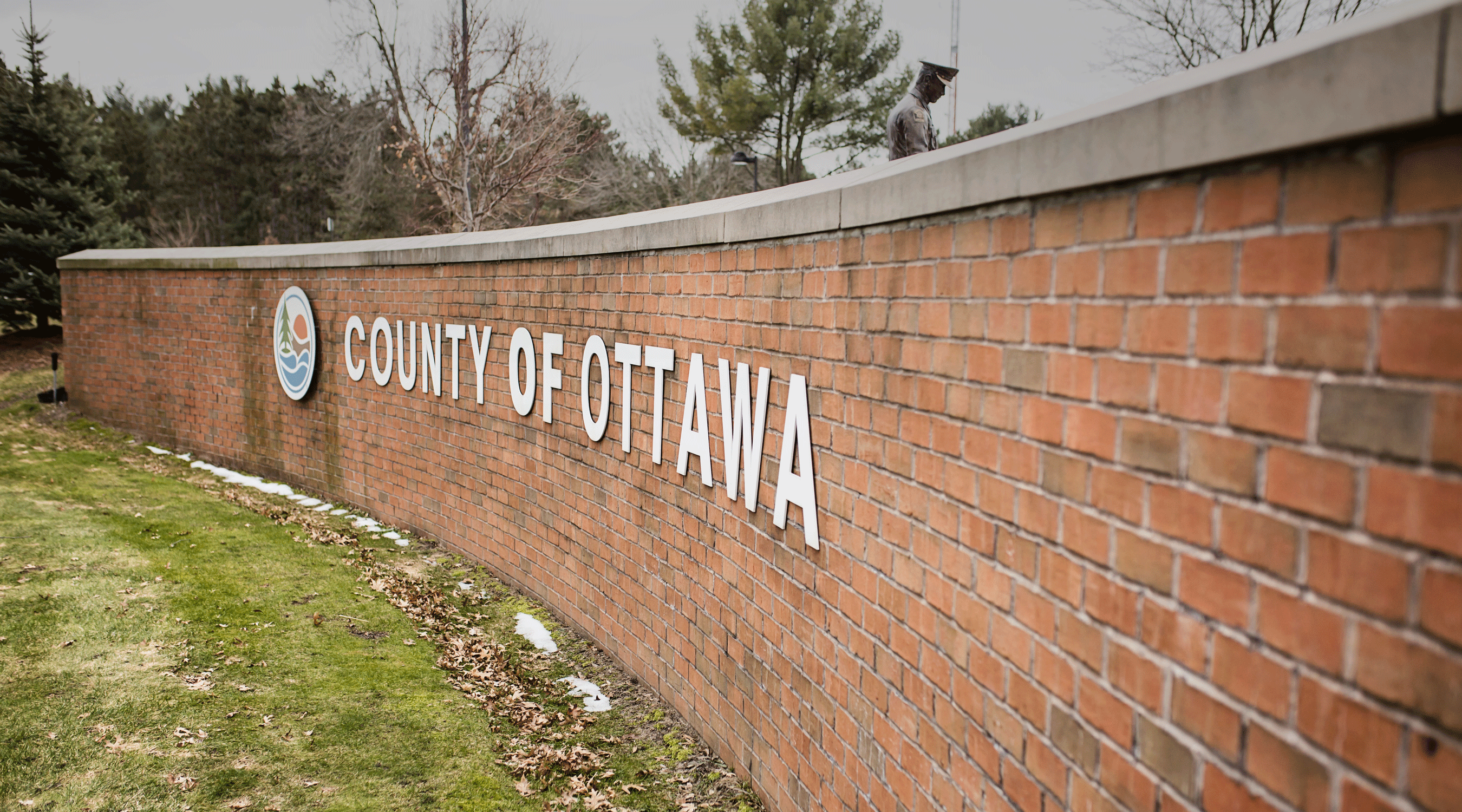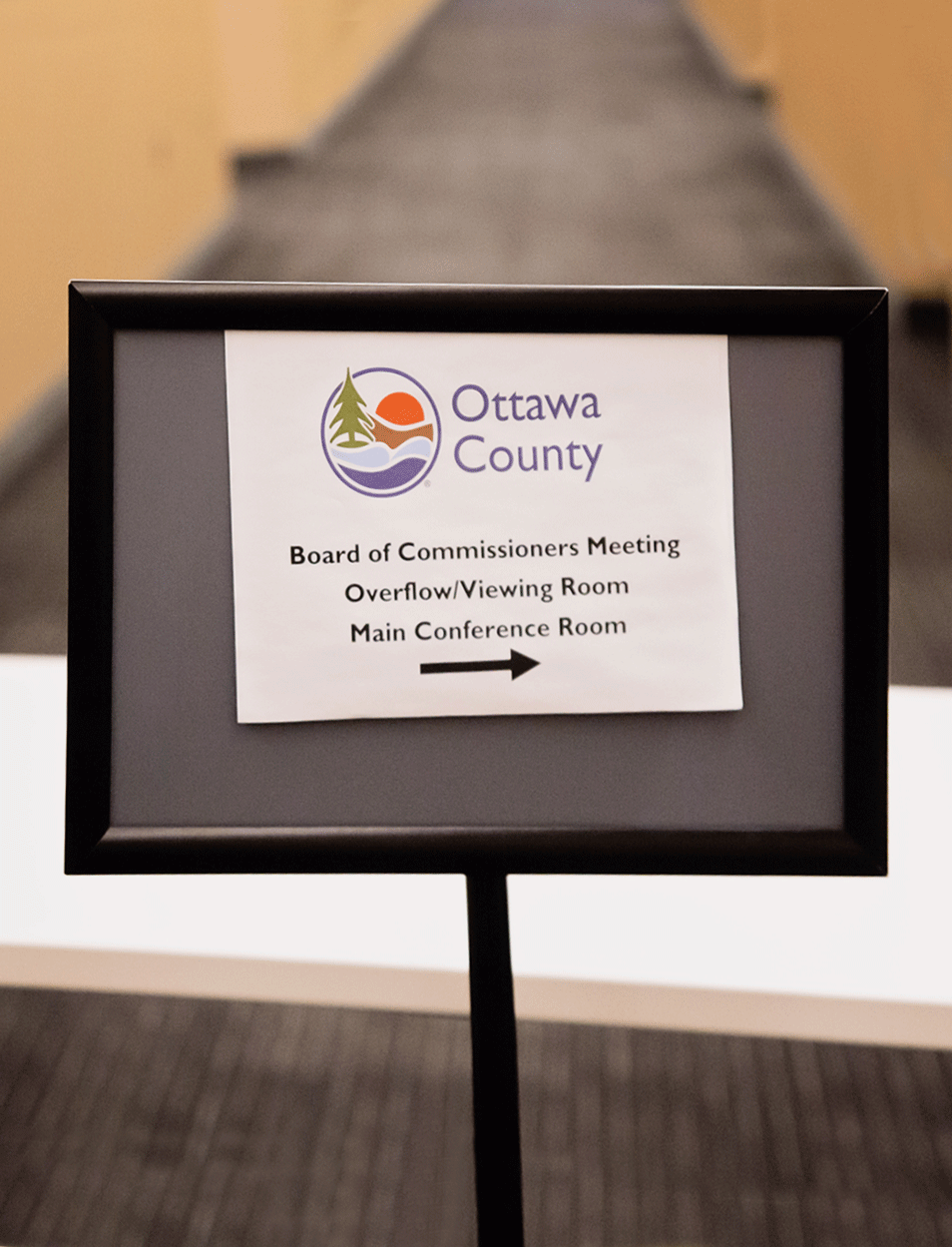
BOARD OF COMMISSIONERS
Community Health Needs Assessment in the spotlight as County Commissioners ask questions
Published May 8, 2023
Written by Adams
Photography by Simply American
“It’s not a purview of this Board to review or approve the survey questions.” Adeline Hambley, February 21, 2023.
Hospitals Partner to Meet Federal Mandate
The board meeting of Thursday, April 27, 2023, was the first time the public had the opportunity to hear questions planned for the Behavior Risk Factor Survey to be used in the 2023 Community Health Needs Assessment.
Ottawa County’s three local hospitals are federally mandated to complete the Community Health Needs Assessment (CHNA) to keep their non-profit status. The federal deadline for the hospitals is November of 2023. Ottawa County has no mandate to complete the CHNA.
The Community Health Needs Assessment and the Community Health Improvement Plan are created every 3 years utilizing the following tools: an Underserved Resident Survey, Key Stakeholders Interviews, Key Informants Online Survey, Population Health Data Tool, and a Behavior Risk Factor Survey (BRFS). A Maternal Child Health Assessment also is created as part of this process, which includes the use of data from the Ottawa County Youth Assessment Survey (YAS).
Local hospitals, non-profits, and government entities formed Healthy Ottawa in 2011, an advisory committee which chooses the questions for and completes the Community Health Needs Assessment every three years.
Partners in the 2023 project include Corewell Health Zeeland Hospital, Holland Hospital, Trinity Health Grand Haven, Community Mental Health of Ottawa County, the Ottawa County Health Department of Public Health, Ottawa Area Intermediate School District, United Way of Ottawa and Allegan counties, Community Spoke, and the Ottawa County Stop Child Abuse and Neglect Council.
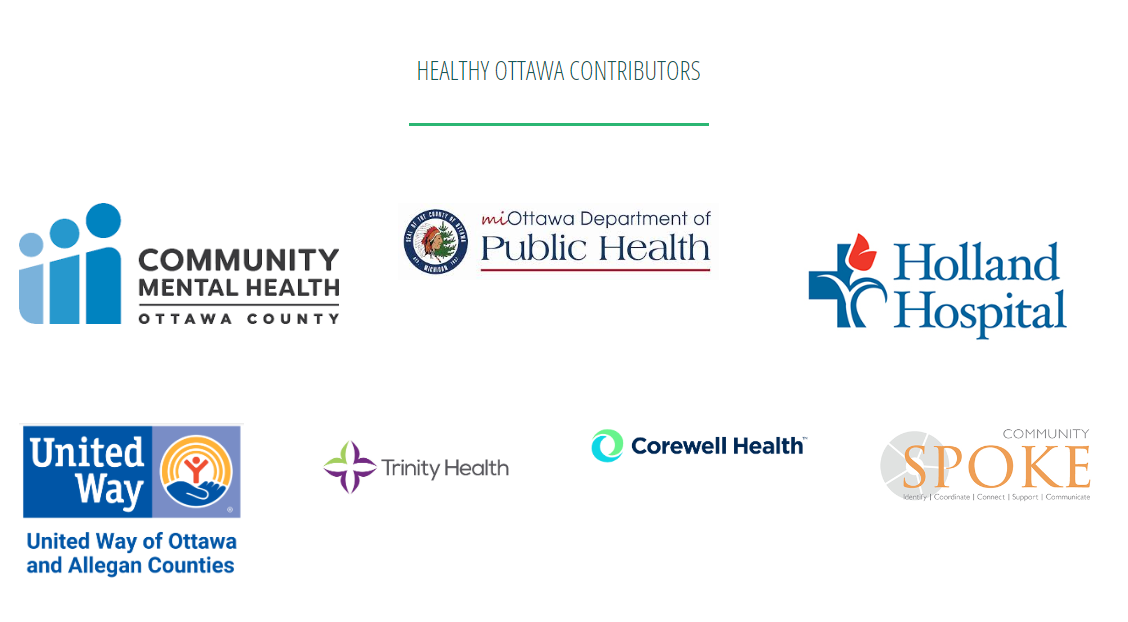
Request to View Questions Prior to Vote
The Memorandum of Understanding (MOU) in regards to the Community Health Needs Assessment, which is to be facilitated through a contract with VIP Research, was first brought before the Ottawa County Finance and Administration Committee on February 7, 2023.
Memorandums of Understanding are used as a way for all parties involved in a project to express that they agree to proceed with their mutual goals and responsibilities. Once a MOU is signed by all parties it provides a green light to begin work.
In discussing the MOU, Board Vice-Chair Sylvia Rhodea requested to view the Behavior Risk Factor Survey (BRFS) questions, one of the components used to build the Community Health Needs Assessment (CHNA). Per the MOU outline provided, the BRFS questionnaire draft was scheduled to be finalized on February 3, 3023. The health department then noted the BRFS questions to be in the process of completion.
The BRSF questions were not provided to the commissioners prior to the February 16, 2023, board meeting, resulting in the MOU being pulled off the consent agenda pending receipt of the questionnaire.
At the Ottawa County HHS Committee meeting on February 21, 2023, Adeline Hambley of the Department of Public Health instructed the Board of Commissioners, “It’s not a purview of this Board to review or approve the survey questions.”
Although the health department had not yet provided the commissioners with the questionnaire, Hambley charged, “I believe there may be some issues with the sexual orientation and gender identity demographic questions.“
The 2023 BRFS questions were provided to the commissioners near the end of April, and the MOU for the Community Health Needs Assessment (CHNA) was again placed on the agenda for the April 27, 2023, Board of Commissioners meeting.
Lisa Uganski of the Department of Public Health, and facilitator for Healthy Ottawa, was present to answer questions. She reported on the components of the CHNA. The Underserved Resident Survey was 50% complete, the Key Stakeholders Interviews were complete, and the Key Informants Survey and the Behavioral Risk Factor Survey (BRFS) questions had been developed but had not been implemented in the field yet. The Maternal Child Health Assessment questions remained in development and also had not been implemented.
Youth Assessment Survey
Commissioners raised concerns regarding two surveys, the Behavioral Risk Factor Survey (BRFS) and the Ottawa County Youth Assessment Survey (YAS).
YAS Survey data from 2021 would be used to complete the Maternal and Child Health Needs Assessment and the Community Health Needs Assessment (CHNA). The 2023 YAS Survey, to be administered in the fall, would be funded separately and utilized for the CHNA in future years.
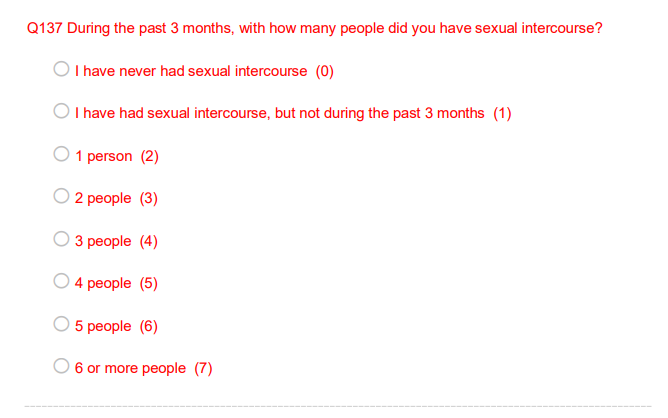
YAS Survey, Question 137
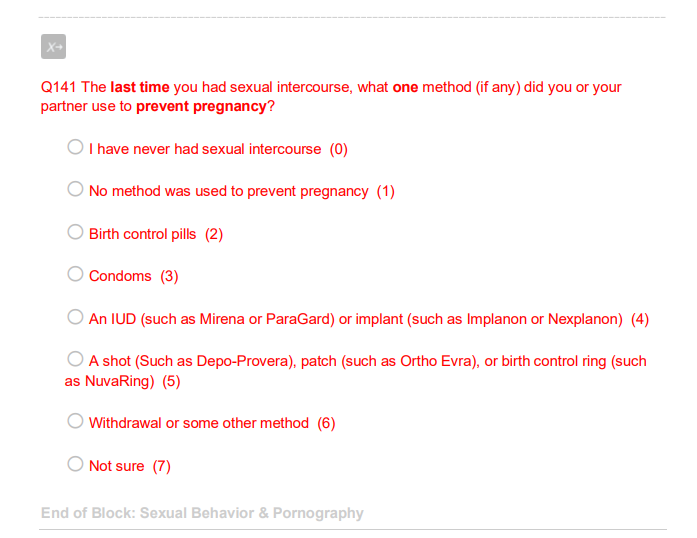
YAS Survey, Question 141
The YAS Survey is administered online to 8th, 10th, and 12th graders in numerous public and private schools in Ottawa County. While the questions are chosen locally, the survey essentially follows the same questioning as the CDC’s Youth Risk Behavior Survey.
The committee which oversees the YAS Survey is comprised of representatives from the Ottawa County Department of Public Health, Lakeshore Regional Entity, Ottawa Area Intermediate School District, Greater Ottawa County United Way, and Arbor Circle. Additionally, numerous local community foundations contribute to funding the initiative.
Parent Notification and Consent Lacking
Commissioner Gretchen Cosby, with a 30-year career in nursing management, voiced parents needed to be informed of the YAS Survey, noting this was the first time some constituents would learn about the surveys used to create the CHNA.
“I’m just curious, when they give these questions, are the parents around?” Cosby asked. “Some of these questions would require support.”
Uganski responded, “The Youth Assessment Survey is given to students in school. Parents are notified beforehand. Districts can opt out of the entire survey if they want. So it is completely up to a district if they even participate in the survey. And even if they do participate each district has the option to opt out of the reproductive health questions.”
“And so if a district decides to participate in the Youth Assessment Survey and participate in the reproductive health questions and the parent has not indicated they don’t want the child to participate, then the child would take the survey during the school day.”
Uganski’s assertion of parental notification prior to the YAS Survey is counter to the experience of Ottawa County parents, who have historically reported efforts to notify parents and obtain prior consent to be weak in numerous districts. Ottawa Impact addressed the YAS Survey in The Pro-Life Protection Assessment in May of 2022.
According to Ottawa Impact: “Another issue of county wide concern to parents is the highly sexualized and intrusive YAS youth behavior survey for 8th, 10th, and 12th graders at school which normalizes, among other things, sexual interactions at early ages and with multiple partners. The YAS survey has been used to bolster efforts to implement Comprehensive Sexuality Education in area schools. Over the past few years, numerous parents have pushed back on the sexualized YAS survey and asked area schools to implement parental notification and consent on this Health Department sponsored survey. A Facebook post from Ottawa Impact covering the survey received 22,229 views, 8643 interactions, and 232 shares.”
Explicit Questions for 8th, 10th, and 12th Grade Students
The 2021 YAS Survey for students included the opening instruction, “Some of the questions in the survey are very personal and may bring up difficult emotions. If you need to talk to someone during or after the survey please contact your school social worker or another trusted adult.”
The 2021 survey with the reproductive health component contained 216 questions, including numerous intrusive and sexually intimate questions asked of 8th, 10th, and 12th graders. Questions spanned topics such as social media, bullying, mental health and suicide, sexting, sexual activity, substance use, diet, physical activity, home and family interactions, extra-curricular activities, gambling, and difficult (traumatic) life events.
In discussing the survey, Cosby asserted, “Next steps would be required if they answer these questions affirmatively,” noting parents should be ready to opt their children out of the YAS Survey in the future if they are not comfortable with the questions.
Commissioner Rhodea read a few of the questions found in the 2020 YAS Survey regarding sexual behavior (pages 62-71):
- Have you ever had oral sex?
- How old were you the first time you had oral sex?
- Have you ever had sexual intercourse?
- How old were you the first time you had sexual intercourse?
- During your life, with how many people have you had sexual intercourse?
- During the past 3 months, with how many people have you had sexual intercourse?
Rhodea noted answers included options of 11 years old or younger, and having had sexual intercourse with 6 or more people over the past 3 months.
Rhodea concluded, “So just a number of very personal, intimate questions being asked of 8th graders without a parent present.”
BRFS: Triggering Questions for Adults Who Have Experienced Trauma
Commissioner Allison Miedema raised concerns about the Behavior Risk Factor Survey (BRFS), which is to be administered to adults in Ottawa County. The BRFS is a 34-page survey given by a phone bank employee, which takes about 25-30 minutes to complete.
“First, I wonder who will randomly allow that much time, and with no prior notice. Second, this phone call takes place with a stranger, not a doctor/patient relationship where trust may have been established. There is no visual to be able to see body language on the other end of the phone.”
Miedema read the following questions from Section 20 titled “Suicide:”
- Has there been a time in the past 12 months when you thought of taking your own life?
- During the past 12 months, did you attempt to commit suicide (take your own life)?
From Section 21 titled “Adverse Childhood Experience,” Miedema shared the following script and select questions:
I’d like to ask you some questions about events that happened during your childhood. This information will allow us to better understand problems that may occur early in life. It may help others in the future. This is a sensitive topic, and some people may feel uncomfortable with these questions. To reiterate, at the end of this section I will give you a phone number for an organization that can provide information and referral for these issues. Please keep in mind that you can ask me to skip any question you do not want to answer. All questions refer to the time period before you were 18 years of age.
- How often did anyone at least five years older than you or an adult, ever touch you sexually?
- How often did anyone at least five years older than you or an adult, try to make you touch them sexually?
- How often did anyone at least five years older than you or an adult, force you to have sex?
Miedema explained that at the end of the phone call, the callers are given a phone number to call if needed—or are told to contact their own doctor or healthcare provider.
Joining Miedema with concerns, Rhodea commented, “So we’re doing all of the surveying of our people who we care deeply about, asking about very intimate, personal subjects and we’re doing it on behalf of other entitles as well.”
Rhodea continued, “I’m very concerned about being put through this, what kind of a place that’s going to bring a person to, and I’m concerned about the liability to the county honestly, about walking somebody through this stuff, bringing up things that maybe they haven’t thought about in a really long time, and they’re left there alone. They’re given a phone number but, they don’t even have a face that they’re looking at to process this with.”
At the conclusion of the section on “Adverse Childhood Experiences”, the interviewer is instructed to read:
“As I mentioned earlier, these questions are sensitive and may trigger difficult memories or emotions in some people. I would like to give you a phone number for a 24-hour help line where someone can talk to you or just provide you with helpful information or a referral, if you need it. An organization that can provide information and referral for these issues. You can dial the Ottawa County mental health crisis line at 1-866-512-HELP (4357). Another option would be to contact your own doctor or healthcare provider. You can also speak directly to your doctor or health provider.”
Earlier in the questionnaire the interviewee is informed upcoming questions are sensitive and some people may feel uncomfortable, but not that they “may trigger difficult memories or emotions in some people,” especially such that might require a 24-hour help line, the Ottawa County mental health crisis line, or the need to contact your own doctor.
People Over Institutions
Confirming with Uganski that both hospital finance personnel and medical personnel had been present at Healthy Ottawa meetings regarding the CHNA, Cosby shared, “My biggest concern honestly, and I know we can’t change the questions—so I want people to be aware of what those surveys are, that we’re not putting business interests of health systems before the people of the community and their needs.”
Cosby noted new questions had been added, and that usually what is looked for year over year are changes in outcomes from the programs.
“I’m a nurse by training. Typically, we would take that information and try to decide what programs we would design based on the needs that have been identified.”
Uganski redirected the Commissioners back to the approval of the Memorandum of Understanding (MOU) at several points.
“I think the issue at hand,” Board Chair Joe Moss said, “if I am summarizing it correctly, is more related to being told that we have no input on the questions, no oversight, yet now being asked to approve all of it and then being told that the questions are already decided but there is no MOU (Memorandum of Understanding).”
Vote Postponed
Should the county provide clear notice to respondents about the types of questions they may be asked before administering a survey that may cause them to need a crisis hotline?
Does the Community Health Needs Assessment prioritize the goals of the health department and other institutions above the health of individual people in the community?
Business entities and hospitals may make business decisions regarding surveys and data differently than elected officials with a constitutional responsibility to protect the individual rights, privacy, and safety of the people. As seen in recent years, health departments likewise may find themselves aligned more deeply with systems, institutions, and protocols than the people they are supposed to serve.
Ultimately, having learned the Behavior Risk Factor Survey (BRFS) questionnaire was not yet being utilized in the field, Miedema motioned to postpone the vote on the Memorandum of Understanding for the Community Health Needs Assessment until the next Board meeting for further review of BRFS questionnaire.
As the meeting wrapped up with public comments, a constituent confirmed the commissioners’ fears.
“If someone answers this survey phone call and agrees to answer the survey not knowing the questions that they’re about to have to answer, who would be there for them in the days to come with the PTSD hits them in the face from the previous sexual abuse? And are you legally liable then if they are alone and/or something bad happens to them?” asked a public commenter.
“I was that person,” the commenter continued. “I was raped when I was 12 and I can tell you from experience, that had someone called me with this survey, I would have shook uncontrollably and would have had to relive the entire rape. How is this survey helping people like me? It’s not!”

